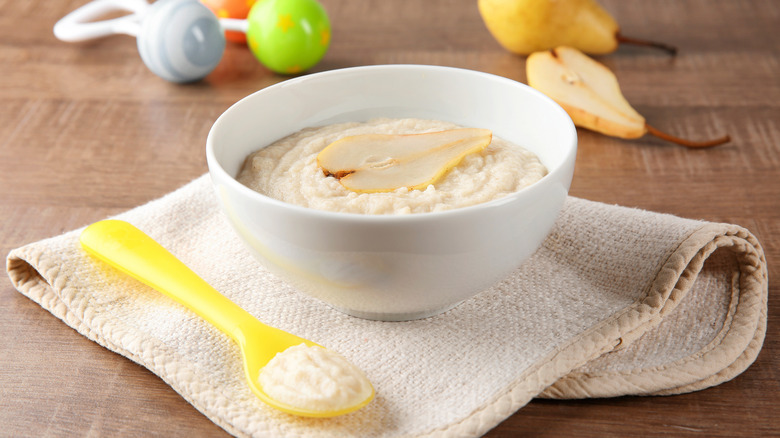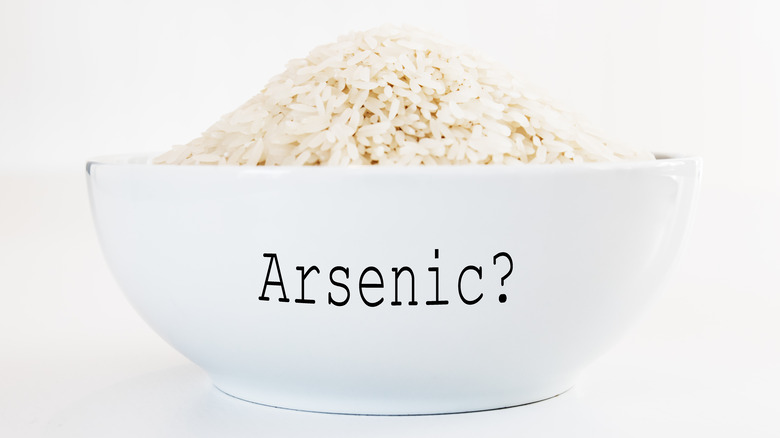Read This If You've Recently Bought Baby Food From Walmart
On October 8, food manufacturer Maple Island Inc. initiated a voluntary recall of three production lots of its 8-ounce containers of Parent's Choice Baby Rice Cereal, which are sold in Walmart stores across the country. The company explains in its announcement that the product contained naturally occurring inorganic arsenic in an amount that exceeded the FDA's limitations. The following lots, which were all sold after April 5 of this year, are the items affected:
Lot 21083 with UPC Code #00681131082907 with a best if used by date of JUN 24 2022
Lot 21084 with UPC Code #00681131082907 with a best if used by date of JUN 25 2022
Lot 21242 with UPC Code #00681131082907 with a best if used by date of NOV 30 2022
The lot number and UPC code can be found next to the best-by date on the bottom left corner of the package's backside, the company says. Any package of Parent's Choice Baby Rice Cereal that is not listed has not been affected by the recall, and no illnesses from the products have been reported so far. This is not the first time that baby food has been found to contain toxic metals this year. As CNN reported in June, Beech-Nut Nutrition stopped producing its infant rice cereal entirely after finding arsenic in the product.
Why does baby food contain arsenic at all?
Arsenic is a chemical element that occurs naturally in the environment and can enter food through water, soil, or air, explains the FDA. It's impossible to remove it from the food supply entirely, but the organization aims to limit consumers' exposure to inorganic arsenic through rigorous testing. It keeps an especially close eye on infant rice cereals because arsenic often seeps into rice, and developing babies who are exposed to high levels of arsenic are more likely to have brain damage.
Healthline explains that the difference between organic arsenic and inorganic arsenic is that the former is found in animals and plants, while the latter, more toxic version can be found in rocks, soil, and water. Rice tends to absorb more arsenic from contaminated soil and water than other crops, making it one of the most arsenic-containing foods in our daily diet.
Some experts say that the FDA's cutoff level of 100 parts per billion of arsenic in infant rice cereals is too high and does not take into consideration infants who eat higher-than-average amounts of rice. In fact, the organization did not instate this cutoff level until 2020 (per the FDA), four years after a study found that nearly half of these products on the market contained 100 parts per billion of arsenic or more, CNN reports. Instead, our foods "should not have anything more than single-digit parts per billion" of any toxic metals, Democratic Rep. Raja Krishnamoorthi of Illinois told CNN. Until the FDA lowers the cutoff, Jane Houlihan, research director for Healthy Babies Bright Futures, recommends that parents choose non-rice cereals for their babies.

